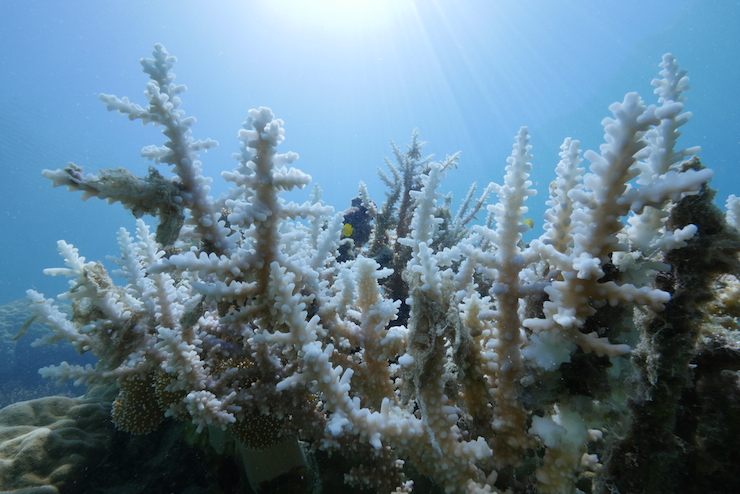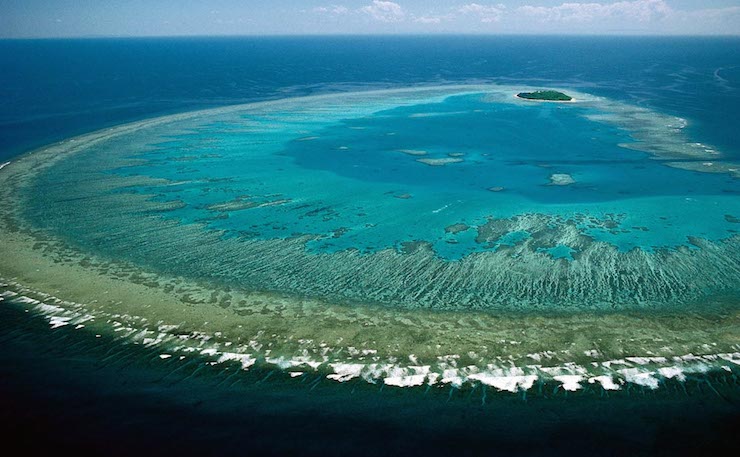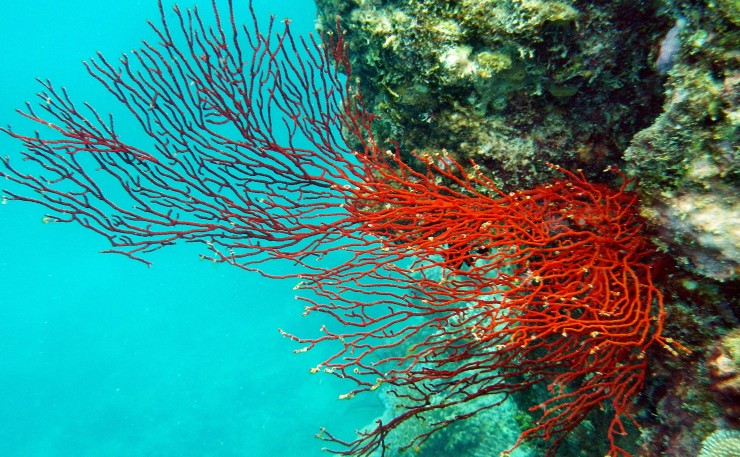The Federal Government’s plan to save the Great Barrier Reef is “totally inadequate,” and if whoever forms government doesn’t commit at least $10 billion this election the natural wonder is likely to be doomed, scientists at James Cook University have said.
This extraordinary warning comes from leading water quality expert Jon Brodie and Emeritus Professor Richard Pearson, who are speaking out after they published a paper this week. In an interview this morning, Brodie said the Reef “will never be in its full gory again, we can’t expect that, [but]it’s going to get worse unless we do something”.
The Scientists said the twin threats of poor water quality and climate change could put the Reef in “terminal” decline within five years, unless whoever forms government comes to office with a comprehensive, cohesive, and adequately-funded rescue plan.
The Coalition Government has released a plan, known as Reef 2050, but it scarcely mentions climate change and Brodie said it is “totally inadequate”. “I’m probably the leading water quality expert for the Great Barrier Reef over the last 30 years and I’m saying the water quality [aspect of the plan]is absolutely inadequate,” he said.

“It was meant to be a comprehensive plan, of course, but as has been pointed out by everyone, and particularly the Australian Academy of Science, it’s totally inadequate,” he said.
The James Cook University scientists said catchment and coastal management programs need to be funded in the order of $1 billion per year over the next ten years. “We need a plan to fix up water quality as best we can, to provide some resilience against the oncoming climate change impacts,” Brodie said.
The Great Barrier Reef has made headlines over recent months as 93 per cent of the Reef, which is the only living structure that can be seen from space, has been affected by coral bleaching.
Fuelled by warming waters, the coral bleaching event was the worst in recorded history. The uncompromising heat was a result of an El Nino climate system, superimposed over baseline temperatures already pushed up by climate change.
“Before climate change kicked in we simply never saw bleaching,” Professor Terry Hughes has previously told New Matilda. “It’s quite confronting that we’ve now got to the stage that every El Nino event – and they happen every few years – is a threat to the Great Barrier Reef,” said Hughes, the Director of the Australian Research Council’s Centre of Excellence for Coral Reef Studies.
The threats posed by climate change are exacerbated by plague-like outbreaks of Crown of Thorns Starfish, which are triggered by poor water quality. According to the James Cook University Scientists, the next outbreak is most likely to occur around 2025.
If we don’t make serious inroads at improving water quality by then, the fate of the Reef looks grim.
Brodie and Emeritus Professor Pearson are calling for management of the Reef to be extended beyond the bounds of the World Heritage Area, north to the Torres Strait, south to Hervey Bay, and inland to include the Great Barrier Reef catchment.

This would of course come at a cost. But Brodie points out that while $10 billion over ten years “may seem like a lot of money, we know that amount would be effective and it’s small by comparison to the economic worth of the Reef, which is around $20 billion per year”.
Current Federal funding, he said, “is almost nothing”. And that doesn’t look likely to change. “So far in the election campaign, we’ve seen no major commitments about the Great Barrier Reef at all from anybody really,” Brodie said.
The Great Barrier Reef Campaign Director at the Australian Marine Conservation Society, Imogen Zethoven said “the massive coral bleaching taking place right now on the Reef and the latest science over recent months all point in one direction: The outlook for the Reef is dire and we must act now.
“Things are worse than we thought for the Reef’s future, we are close to the brink of what this fragile ecosystem can tolerate without a credible plan for restoring it to good health,” she said.
“Australia’s current plans to protect the Reef are inadequate, short-sighted, lack appropriate funding and will not prevent its decline.”
Donate To New Matilda
New Matilda is a small, independent media outlet. We survive through reader contributions, and never losing a lawsuit. If you got something from this article, giving something back helps us to continue speaking truth to power. Every little bit counts.





